Meredith Sue Willis's
Books for Readers # 195
February 13, 2018
When possible, read this newsletter online in its permanent location.
Back Issues MSW Home About Meredith Sue Willis Contact
.
Meredith Sue Willis's Books for Readers # 195
In Memoriam:
Halvard Johnson, poet and cofounder
of Hamilton Stone Editions and The Hamilton Stone ReviewThomas E. Douglass, who wrote
on Appalachian literature and writers
A Time to Stir: Columbia '68
Essays on the 50th anniversary of the
Student Rebellion at Columbia UniversityTruth in advertising: MSW has an essay in this!
See Below for more.
Coming Later This Year from WVU Press:
MSW's New Novel!"Tough-minded, compelling...a terrific read" -- Phillip Lopate
"Sweet, slyly humorous cadences of West Virginia" -- Diane Simmons
"A compelling series of mysteries" --Jane Lazarre
In This Issue of Books for Readers:
Articles and Announcements
Books on West Virginia History from Gerald Swick
Mountain State Press Celebrates Forty Years!
Barbara Rosenblatt on getting a Nonfiction MFA
A List of Must-Read Latino Literature
A List of Books about Appalachia from In These Times
Selected New Anthologies of Appalachian Literature
Hilton Obenzinger on A Time to Stir
News from Rachel King
Reviews and Short Takes
(All reviews and commentary by MSW unless otherwise noted)Donna Meredith Reviews Voice on Unity
Ramp Hollow
The Climb from Salt Lick
Lincoln in the Bardo
Just Kids by Patti Smith
Shelley Ettinger on recent Joyce Carol Oates novel
N.K. Jemisin Trilogy
Victory by Joseph Conrad
Jennifer Egan's A Visit from the Goon Squad
The Handmaid's Tale by Margaret Atwood
The Last Chronicle of Barset
Walter Mosely Books
Online, Announcements, etc.
Things to Read & Hear Online
Announcements and News
Irene Weinberger Books
I'm delighted to open this long issue with a review by Donna Meredith of an anthology called Voices on Unity (in which I have a selection). The anthology was edited by writer/publisher Cat Pleska, and it comes from Mountain State Press, which is celebrating its fortieth birthday--See below! Other reviews include two more with a strong West Virginia connection or setting: Ramp Hollow (a scholarly answer to the much-ballyhoo'dHillbilly Elegy) and The Climb from Salt Lick about a journalist come-here and her life in West Virginia. There are a lot of other recommended books, too: science fiction, Victorian novels, Conrad, Egan, Atwood, Patti Smith, and more!Voices on Unity: Coming Together, Falling Apart Reviewed by Donna Meredith
E Pluribus Unum. A fine motto, but perhaps we Americans had forgotten how difficult it has always been to achieve thatgoal. If we had a touch of amnesia, the 2016 election and its aftermath reminded us. It is division—and the ways people strive to overcome it—that the anthology Voices on Unity: Coming Together, Falling Apart explores.
The collection, edited by author and publisher Cat Pleska, showcases thirty-five accomplished writers. In the introduction, Pleska says her intention was to “help writers use their voices.” She quotes veteran writer Anne Lamott’s advice: “You get to tell it, because it will become medicine.” In this anthology, writers share their prescriptions for dealing with tumultuous times, although only a few examine this theme strictly in the current political context. Others explore family, gender identity, race, and marriage. These essays, stories, poems, and song land a powerful emotional punch, one that will touch the hearts and minds of readers everywhere.Both Pleska’s introduction and the first essay use the 2017 Women’s March as a focal point. Pleska recounts her own personal activism when she connected with fellow students to briefly protest cancellation of a high school trip, and then her decades-later participation in the Women’s March. Her essay also reflects on moments when Americans have put aside political division to forge unity.In the narrative nonfiction piece “I Hear You,” Kayla Queen alternates the Women’s March with a yoga retreat. In both events she is surrounded by strangers who come together with a purpose. At the march, Queen is struck by “how many people are being affected by the political climate, how many are suffering, how many are afraid for so many different reasons.” She witnesses “the human race using its voice to stand for something better.” At the yoga retreat, she discovers a similar connection “of being among other women who made [her] feel powerful.”Marie Manilla’s “Fire Walker” offers a personal slant on women’s issues by describing how her marriage falls apart, but more importantly, how her own ideas of a woman’s place in the world evolve. Growing up, she absorbed a negative message pervasive in our culture: “Women were to stand stoically by and take piles of crap without being a nag. It was a badge of honor to bear up without whining.” Eventually she realizes her own hopes and ambitions matter too, and she wouldn’t achieve them or heal her own wounds by trying to rescue her “damaged ex.”The short story “Mattresses,” by Christina St. Clair, also portrays a clash between genders. The female protagonist complains her minister husband keeps her awake all night but refuses to recognize her need for a larger bed. Even though she knows she’ll cause scandal, she considers divorce. The church people would “never understand how a pastor’s wife or any wife for that matter could want her own life.” She’s not asking for the moon—just a queen-size mattress and a good night’s sleep. The story is about so much more than a mattress. If this dominant male denies his wife’s most basic needs, the rest of her dreams are surely ignored as well.In contrast, two pieces explore the uniting of a man and woman in mature and beautiful marriages. In “Gathered Together,” by M. Lynne Squires, the newly married couple elevates the concept of a unity candle to new heights. They request that guests from the bride’s side exit the church with someone from the groom’s side, and that they get to know the other person and seek similarities. The ritual, they hope, will connect their personal worlds—and more: “today a wedding; tomorrow a world.” The story suggests the importance of listening to those with different backgrounds, different world views.Another wedding in the anthology describes unity between religions. In “Time for Singing,” by Magin Lasov Gregg, a Jewish woman and a Baptist minister fall in love, despite the woman’s initial concern that “Ministers are another species of men, something [she] should avoid and venerate.” During their courtship, she wants to know how they will “create a unified family while maintaining separate religious beliefs.” Carl’s response is sensitive and loving: “The best way for Christians to atone for centuries of Christian-inflicted violence against Jews is to bring more Jews into the world.” Clearly, they have no intention of changing each other, no “power struggles,” no push to convert.One piece that stole my breath—I mean, really knocked me to my knees—is “Arrhythmia,” a prose poem by Joel Peckham. The anthology would be worth a place on any bookshelf for this piece alone. It begins with these arresting lines:There is a shyness and a wish in the song of tires on the interstate after rain—a consoling shhh that settles like a hand on a shoulder or fingers gliding through a child’s hair or the soft roll of cymbals fading at the end of the last torch ballad an hour past last call when everything is settling toward silence still swelling and swollen with a promise it will come again. It will come again, I say, whispering.The piece expands in eight associative fragments that gel into a powerful whole. The crux is a tragic moment the narrator can’t remember fully: “I do not know if my son screamed when the van struck the truck, when the glass shattered around him when he was, for an instant thrown to flight.” From this tragedy, the narrator searches for meaning in human suffering:This is what listening means—finding in the storm, the harmony, the single tap of rain among the many rhythms, the molecule of hydrogen in silence beating like a heart among so many which is to find the unheard unuttered cry of one’s own child in the eyes of a girl staring from a broken city, in a woman’s unhinged wailing, in the body washed up on the beach a world away as the waves pound sand to sand drawn to and from the sea.Suffering—and the recognition of it—unites humans. It creates empathy, the ability to reach out to others.Another human suffers from terrible loss in the opening of Meredith Sue Willis’s novella, Saving Tyler Hake. The story fits the theme of unity since the narrator explains the entire community “saved him together.” Tyler’s father, we learn, committed suicide after returning from the Gulf War. When Tyler shows up at school wearing his father’s blood-stained, bullet-pierced shirt, we know the boy is in serious trouble, and of course we are hooked. We want to discover how a compassionate community reaches out to help him.Eberly Barnes’s “Sermons I Never Wrote Because I Was a Girl” is a powerful piece examining the various ways lack of empathy can cause suffering. The female narrator encounters strong parental prejudice against her writing sermons like her minister father, but the essay travels far beyond suppression of childhood dreams. As an adult, she deplores roadside signs like “Jesus is Lord. We Process Deer,” and she imagines “men in white sheets” who “burned crosses in cheerleaders’ yards if they happened to speak nicely to the star (black) football player.” The narrator finds a measure of contentment by fleeing from her Louisiana home to a St. Louis bakery, PanDora’s, where people of all ethnicities and genders come together to make focaccia seasoned with sage. Her sermon espouses traditional healing:When the air is filled with shotgun blasts to the face of one type or another; when those shadowy figures in white robes have infiltrated the highest offices of the land; when the world I thought I left behind has risen up and casts a large shadow: “Rub sage.”The herb has long been used by indigenous people to ward off evil spirits and in purification rituals. The baking of good bread and the heady aroma released when rubbing sage offers the narrator comfort, therapy to counteract a world beset by evil.Also dealing with the American racial divide, Kelly McWilliams' memoir “Ancestry: The Mixed-Race Third-Grade Blues,” is both funny and poignant. The narrator and her mother laugh as they invent a country of origin and a dance set to drum licks stolen from Sweet Honey in the Rock to satisfy a third-grade teacher’s well-intentioned assignment on family heritage. Yet the story is sad because family history has been erased for those whose ancestors were slaves:Our roots aren’t found on the tips of our tongues, because those roots were severed, silenced, tree after gorgeous tree cut down. . . . We are each of us waves in an ocean of American blackness, a consciousness flowing through fragmentation, persecution, loss.The assignment brings the mother and daughter together as they “skim joy from the old suffering.” They refuse to be beaten down by the dark past. They choose happiness instead.A touch of humor also enlivens Randi Ward’s short but evocative poem “Ground”:Why buildso muchfencewhen you can’teven keep grasson a pieceof ground?Every gardener knows the truth of this one. Bunnies, armadillos, and bamboo find ways to burrow under fences, and birds and drones fly over. Fences and tunnels breach the barriers too, as many immigrants have discovered.The solutions offered for dealing with division are as varied as the writers themselves. Chris Arvidson suggests “Perhaps harmony is actually found / In the questioning itself.” Karen Salyer McElmurray studies words like love, rage, and kindness, hoping to find “some true power with which to resist.” Poet Chris Green suggests we ask our ancestors for guidance: “O, Grandfather, Grandmother, / Give us the wind’s name that bears / the scent of the summer’s first stars.” Mary Barbara Moore says “ ‘No’ to the mean- / minded, ‘Yes’ to the signs / of action, singing and signing.” Eberly Barnes offers this advice: “Remain calm and practice tai chi and yoga and meditation. Sing, pray, move, stand, sit, whole body, whole heart, whole being. Protest, march, write, share.” And a simple but effective prescription for getting along with others is expressed in Belinda Anderson’s mother’s final words: “Be kind to each other.”Perhaps the most inspirational path to find peace is found in Larry Franklin’s essay “The Path”, a “path that, if followed, will give you a life with love, a life with God.” First, Franklin says, “build yourself a flower garden, preferably one big enough to walk through. Surround it with birdhouses, bird feeders, and a birdbath or two.” When nature’s creatures come to visit, you will feel “the love, the presence of God.” He also suggests adopting a dog because it will offer the gift of unconditional love. And finally he suggests developing “friendships with two, three, or more people who, like your flower garden, offer beauty in their different sizes, shapes and colors.”The anthology’s authors offer us hope that, by listening to those with different views, we can become more empathetic, that we can reach across a chasm that threatens to split our nation in two once again. And even if we sense the ground shifting and shaking beneath our feet, we can still forge our own path to peace and happiness.Ramp Hollow: The Ordeal of Appalachia by Steven Stoll
This nonfiction study of subsistence farming teaches us what poverty is and is not. Some cultures, says Stoll, have in the past and even now in a few far flung places, lived well with fewer material goods than twenty-first century Americans expect. The grinding, miserable poverty we think we know today is largely an artifact of economic factors. .One of the best this about this book is that it does not set West Virginia and Appalachia in a special little zoo of pathetic poor people, but rather gives us reasons and contexts. It describes the mountains of Appalachia as an example of enclosure (like England in the fifteenth century C.E.) and forced participation on capitalism.The first European settlers of Appalachia, after displacing the native Americans, of course, tended to use the land and the forests as a kind of "commons--" land that belongs to no one in particular but to everyone for their use.
Many of the subsistence farmers of Appalachia, for example, used to run their livestock in the woods for foraging, hunted there for game, and a little logging perhaps for building or to sell. They also kept gardens, using "swidden" or controlled burning to make space for fertile gardens.Then the government began to award great swathes of forest and land to usually wealthy people rather than to the smallholders who had been working the land. After a period of time, the owners began industrial logging that destroyed what had been a shared source of food and cash, and this was followed by exploitation of other resources, notably coal, and a life of enough if not riches was gradually replaced with modern style poverty.Stoll believes that it was not only land grabs and exploitation of resources, but also the explicitly demand of the capitalist system that led to this poverty. Capitalism, says Stoll, demands that everyone participate in the economy of money and wages. That is, surviving on a little farming, a little logging for cash, hunting, etc. doesn't earn wages and puts the people who live that way out of the system. Capitalism demands that we all be in the system.Along with the central thesis are interesting bits on things like Arthurdale (Eleanor Roosevelt's planned community near Morgantown, WV for miners). There's also a section analyzing some landscape paintings by George McInnes that felt like padding-- even though I got a kick out of the connection to where I live now in northern New Jersey.The details are grim and fascinating, but, again, the connection between Appalachia and the rest of the world makes this an especially important book. West Virginians and other Appalachians are not some kind of anomalous victims. The book ends with some of the same things happening even now in in Mali and other parts of Africa, and I recently read a related piece in the New York Review of Books (Issue of January 18, 2018) by Raja Shehadeh that makes the case that enclosure has also been used against agrarian Palestinians.In the end, Stoll puts the blame for poverty as well as environmental degradation squarely on our economic system, and suggests that large political changes are the only way truly to address poverty.
The Climb from Salt Lick by Nancy Abrams
Nancy Abrams' memoir is about choosing a new place, and it is always engaging, but it also attempts to capture some of the struggles of life in a northern West Virginia county. Abrams is a local journalist, and she writes both about her personal life and about events like school consolidation, in which people protest and try to stop changes that might well improve their children's educations. She manages to admire both those who want change and the local conservatives and their aspirations.Her status as an outsider-- a Jew (or as she says, Jew-ISH) in a fundamentalist Christian milieu, gives her a special perspective. She's a suburban girl-photographer who gets a job in Preston County and hangs around the fringes of hippie-dom and the come-heres of the last decades of the twentieth century, but is most serious about chronicling the community. Then she marries a local boy, at least partly to get closer to West Virginia, she says. Their wedding includes her Jewish family as well as West Virginians, and it creates a wonderful moment of human high ground.Life at their place takes a lot of physical labor. Her husband is loving, excellent with machines, great with their two little boys-- but never gets a long term job, and begins to drink more and more. She leaves him in stages, has an affair, starts working in Morgantown, the university town nearby, and finally moves there with the boys--who are amazed by central heating..My favorite parts, however, are not her personal story, gripping as that is, but rather the parts that come out of her journalism, like the fifty year celebration of Arthudale and the great flood of November 1985. I love her stories about reporting on the Buckwheat festival and what happened to the little towns of Preston County-- Roweburg and Terra Alta and Masontown and Kingwood. The story of small town journalism in the nineteen seventies and eighties is alone worth the price of the book.Abrams' life through the end of her marriage and starting to work at a bigger newspaper gives a structure to the book, but the heart of her story is her work-- and her love for this place she chose as a young woman.
SHORTER REVIEWS (notes by MSW if not otherwise noted)
Lincoln in the Bardo by George Saunders
This novel is very popular among literary folks. Michiko Kakatani liked it somewhat reluctantly, but Colson Whitehead raved.It has an unusual setting that might in other hands have been off-putting, but is actually touching and readable. Saunders' Lincoln, who isn't really the main character, is the point of connection between personal personal loss and the nation's loss of so many young men in the Civil War. The best characters, though, are the sometimes bumbling deceased who aren't quite ready to leave the graveyard for their final disposition. There is a minister who is the only one who seems to understand what is going on, and among the others a lot of amusing yet sad talk. It doesn't take long to get into the swing of how it's told. It's made up of snippets of real histories and memoirs and letters as well as made-up histories and memoirs and letters in the style of the real ones, and the denizens of the bardo tell us about their lives and life in dialogue and monologue.Just Kids Patti Smith
Surprisingly novelistic and full of funny surprises. Smith's memoir may not be as deep as she thinks it is, but it's a pleasure to read. To my taste there's too much name-dropping--people from avant garde art and Andy Warhol's entourage (not to mention Janis Joplin's and Jimi Hendrix's and Bob Dylan and others), but her enthusiasm for the famous feels sincere, almost innocent.Smith as a teen determines to live an artist's life, and when she gets to New York really does have trouble getting enough to eat, but seems above all thrilled to be surrounded by talented people. Even later, when she becomes a punk poet rock star in the 70's, she apparently never loses a kind of fan's humility ("OMG I'm talking to Jim Hendrix! He's being so nice to me!"). This feels genuine, as does the relationship with Robert Mapplethorpe, with whom she continued to be close long after their sexual relationship ended, sharing living spaces and art. He, at least according to her, turned her into the artist she wanted to be. She keeps her focus on the two of them, going easy on the rest of her bio. Patti Smith has written poetry, made drawings, written songs, performed poetry and rock and roll--and performed Bob Dylan's work at the Nobel Prize ceremony.I was charmed by her exuberance.Hilton Obenzinger tells us about A Time to Stir: Columbia '68
Hilton Obenzinger writes: "A collection of excellent essays/memoirs about the Columbia 1968 rebellion. [Editor Paul] Cronin has taken great care to incorporate the perspective of the Black students, members of the Student Afro-American Society, who occupied Hamilton Hall. Perhaps the biggest distortion at the time and since has been to make the Black students, who were pivotal, barely relevant in the face of the many more white students of SDS and others. All the perspectives are here: SDS, SAs, cops, administrators (those still alive), grad students, faculty, community members, although there could have been more women. I learned a lot (I have an essay in the book). Such a large event and so many facets. For example, I learned that the assistant DA wanted to drop all charges (trespassing, etc). He was sympathetic to the students but the fact was that they could not prosecute because none of the arresting cops actually could say they saw the student in the building. Most students were beaten, tossed to another cop who beat him or her more, then to another and another, until the arresting officer outside of the building. However, Frank Hogan, the DA who was also a member of the Board of Trustees of Columbia, insisted that they prosecute. In the end, that meant the proceedings dragged on until - all the charges were dropped. Good job, Paul Cronin."
Read a review by Jonah Raskin and here's Phillip Lopate's piece from the book.
Shelley Ettinger on A Book of American Martyrs by Joyce Carol Oates (from GoodReads)
Shelley Ettinger says, "This is [Oates'] best novel in years. The best since The Falls, I'd say. With her last several books I'd thought she was fading, that her powers were waning, but now wow she's back baby, with all the deep impact of her finest work. I don't love the end--the very end, I mean, like the last sentence-- because it feels like she succumbed to a certain unwonted sentimentality, but ok that's her call."Overall, really fine work of a grand scope."N.K. Jemisin's trilogy, THE BROKEN EARTH: Fifth Season, The Obelisk Gate, and The Stone Sky.
I enjoyed the first book most, although I wouldn't have missed any of them. There are great details: in this world where there are explosions and earthquakes and worse at any moment, people keep backpacks they call "runny sacks" handy at all times. There are dangerous smiling Guardians in charge of channelling the power of the "orogenes," who are at once the movers and shakers (quite literally) and the hated alien-outcasts. There is a lot of exploration of what it means to be a mother that is excellent and thought-provoking, and the main character, Essun, in her various stages, is complex.
I was especially interested in the idea of "Comms," which are communities, which are essential for survival in this extraordinarily hostile environment. There is also one semi-human group known as stone eaters who are beautifully realized, at least until the end when probably too much is explained too fast.I guess I got a little tired of the world building by the second and third novels, when Jemisin tries to tie up all the loose ends with one grand narration of history and pseudo geography and biology. Do we really need all the answers? But the complaint may be more about science fiction than about Jemisin.I'll be looking for more by this Hugo-Award-winner and superior stylist.
A Visit from the Goon Squad by Jennifer Egan
Egan has said in an article from the Guardian that this novel was inspired by Proust's À la Recherche du Temps Perdu, and HBO's The Sopranos. I liked it, although the power point chapter (next to last) was hard to read on the kindle version, and the grand finale, while satisfying in some ways, wasn't really very good speculative fiction, IMHO, particularly the technology, which seems all sort of unimpressive– it's technology for people who essentially disdain technology, though they pride themselves on being able to use it.Otherwise, it is a lot of fun to read, slipping from character to character, story to story, with the delight you feel when the connections come clear. The opening story with a kleptomaniac protagonist is wonderful, and that character's reappearances are all interesting. I'm just not sure why Egan decided to go the speculative fiction route,Definitely worthwhile, though. See above for what the Guardian said, or take a look at The Washington Post's review.The Handmaid's Tale Margaret Atwood
I read this many years ago, but I remember almost nothing but the claustrophobic feeling. While I was reading it this time, I scanned a few reviews of it (Mary McCarthy for one) and people seemed, when it first came out in 1985, to be judging it on its didactic qualities. I don't think that was such a big deal--it's really just dystopian fiction. It even has a possibly hopeful ending based on it being told by Offred. because we are ostensibly reading Offred's first person story, suggesting that she was able to look back and tell what happened to her. Also, there is an afterward called the "Proceedings" with a two century perspective on the events of the story. The Proceedings part was annoying for its sexual innuendos (an in-joke on how academic conferences will always be the same, a little slimy?).Offred is set up as painfully ordinary woman, although in retrospect it's a person judging herself for her lack of heroism. Well told though, the gradual revelation of the setting (apparently Cambridge, MA) and of the details, the primary color rigidity at the beginning, then the opening up of more messy life underneath--a good read, although probably not her finest work.Victory by Joseph Conrad
The story acts out the terrible stereotypes of colonialism, both in racism (an inscrutable but clever Chinese; a sleazy dark-skinned Latino (unless he's Italian). But, as usual in Conrad, the European guys aren't so terrific either. And the women don't really count.
What's best about this isn't the people as characters, but as the locus for gathering doom, particularly around the main character, Heyst, a sort of spoiled soul who was raised by a philosophical father to have no hope and no belief. He is, in spite of this, naturally kind-- surprising himself as well as others.The ostensible bad guys are delightfully over-the-top--a misogynistic aesthete and murderer named "Jones" is truly creepy, but maybe more interesting is the talkative sociopath Martin Ricardo, who always needs to attach himself to some leader he perceives as higher being (thus he follows Jones who he believes to be a gentleman)..I've read several of Conrad's books lately, and they have a quality that holds me. I just wish he were more self-aware of his terrible racism–claiming general misanthropy isn't good enough.
The Last Chronicle of Barset Anthony Trollope
One more time through the Chronicles of Barsetshire. This one finishes up a few loose ends from the previous books: Lovely Lily Dale, jilted cruelly, refuses to entertain her faithful lover's offers. While she puts forth a charming surface, she strikesme as living on and for her pride. I kept wondering what she will do for the next fifty years, no profession, no real influence in her world. She'd be a good subject for a feminist spin off story like my little collection of Re-Visions.
There's too much of the ostensibly light material in London, but back in Barset, we have a touching send-off for Trollope's beloved Warden, Mr. Harding, and we get lots of time with Trollope's favorite characters, especially scenes with the bluff squire-like Archdeacon Grantly and his intelligent wife.The real high point of this novel, though, is the story of Josiah Crawley, the ambitious, touchy, stiff necked Greek scholar who is accused of theft. His legal and moral quandaries and the fate of his family make up the central story line. The way Crawley refuses to defend himself nearly ruins his family. He walks twenty miles to see the Bishop and then twenty miles home rather than accept a ride from a friend, and he blathers on about women submitting to their husbands--but teaches his daughters Greek. He suffers obstinately and spectacularly, but his near-insane wounded vanity is at least partly outweighed by his kindness to and respect for the poor brick workers in his parish.I'm already missing the clerics jockeying for political gain and the ladies pretending piety and submission while they really run things, or try to. How long before it isn't unseemly to start over again?(Image above is of Salisbury Cathedral, supposed to be the model for Barchester Cathedral, by Constable)
Three Walter Mosely Books
Mosely is one of my go-to dependables for a fast read: not requiring a lot of effort. Like a sleuths and crime fighters, Mosely's Easy Rawlins spends a lot of time suffering and regretting his failure with the women in his life, but the settings (Los Angeles forty and fifty years ago) are lots of fun, and Mosely's main characters are mostly African-American, which is refreshing. Easy sticks with the program, though by being after a lone wolf.Black BettyThis one is maybe the one to read if you're only going to test out the Easy Rawlins books. In the background, Kennedy is being elected president, and It has the usual concerns and obsessions, and Easy is his usual self, trying to retain a relationship with his assassin friend Mouse while mostly being on the side of law-- but totally on the side of his extended, created family.There's a nice flashback scene that works into the plot well– Easy actually knew Betty back in Texas,when she was a hot and dangerous local figure and he was twelve years old and besotted with her. She turns out to be still dangerous for the people around her.
If a reader gets hooked, they'll go ahead and squeeze the pleasure out of the lesser novels, but this one has all the good qualities. When Mosley's good, he's so very good.White ButterflyHere we get a lot more of Easy's adopted children, including Jesus, who won't speak, and the little girl Feather. This is also the novel when Easy's wife takes his biological daughter and leaves him. There is a string of murdered women and a lot of corrupt police and other corrupt and powerful white men..White FaithI thought I was reading an early book here, but this one is actually Easy Rawlings #11, with lots of references to previous books and a lot of Easy's maudlin world view, so heavy and sometimes repetitive. His depression; the women who fall in his lap all the time. (Some of this is just detective genre cliché). He only partly represses the violent part of himself, and in this book there are others who express the violence for me: Mouse, of course (such a great character: Easy's best friend, the stone cold murderer with no conscience), and the soldier guy with the adopted Vietnamese daughter.
Books about Appalachia Recommended by In These Times:
What You're Getting Wrong About Appalachia by Elizabeth Catte (2018)
Ramp Hollow by Steven Stoll (2017) (see above)
The Shawnees and the War for America by Colin G. Calloway (2008)
Folk Songs from the West Virginia Hills by Patric W. Gainer (2017 reprint of 1975 book)
Gerald Swick talks about his new series of West Virginia history books
It's been a long time since I sent anything to the list of people who used to receive my "Once, Long Ago" column by email. During my 16+ years of writing that column a number of folks told me I should put the columns into a book.Well, I've done more than that. With over 800 columns to choose from I decided to bring out a series of eight books, titled West Virginia Histories, organized into themes such as Civil War, West Virginia Women, Sports, the Arts, etc. A small company in Nashville, Grave Distractions Publications, is publishing the books.The first two in the series—West Virginia Histories Vol. 1: Unique People, Unusual Events, and the Occasional Ghost and Vol. 2: Days of Slavery * Civil War and Aftermath * Statehood and Beyond—have been published and can be found on Amazon and Barnes & Noble. Bookstores can order through Ingram or Baker & Taylor.Each book in the series will feature: 100 articles organized into themes, plus an "Other Stories I Want to Tell You" section for all the stuff that doesn't fit neatly into any of the themes. [There are also] never-before-published articles in each theme, written for this series Each book is extensively indexed; I plan to have a master index in the final one.Each section opener has a photo related to West Virginia's pastTo learn more, please visit my new website geralddswick(dot)com and click on WEST VIRGINIA HISTORIES in the sidebar.... On the site you'll also find my new blog, which applies my, ah, unique style to American history. The site isn't quite finished yet, so I'm holding off on having web engines index it, but you should be able to reach it directly through the URL above. Let me know if you encounter problems.Barbara Rosenblatt on her experience with a limited residency MFA Program
Barbara Rosenblatt writes, "My MFA education at Goucher in Creative Nonfiction is one of the best investments of time and money I ever made. It helped me to find my authority as a writer and led to my teaching memoir writing classes, which I love. However, I have to admit that I actually had more personal work published before the degree than after, but that is more due to my lack of focus in that arena."For more MFA notes, click here.Michael Dowdy's "Must read" List of Latino literature (borrowed from The Writer's ChronicleSeptember 2017 issue)
Spring and All by William Carlos Williams (1923)
City of Night by John Rechy (1963)
And the Earth Did Not Devour Him by Tomás Rivera (1970)
Emplumada by Lorna Dee Cervantes (1981)
Exiles of Desire by Juan Felipe Herrera (1885)
Borderlands by Gloria Anzaldúa (1987)
Their Dogs Came with Them by Helena María Viramontes
Mundo Cruel by Luis Negrón (2010)
Undocumentaries by Rosa Alcalá (2010)
At Night We Walk in Circles by Daniel Alarcón (2013)
Check Out These Anthologies of Appalachian Writing
READ AND LISTEN ONLINE
NancyKay Shapiro's excellent blog of reviews and ideas for reading, Reading Up: Books and Me.Ingrid Blaufarb Hughes blog Not the Whole Person on Psychology Today.com.Why Phillip Roth Stopped Writing: Interesting Interview in the New York Times. Roth says: " by 2010 I had "a strong suspicion that I'd done my best work and anything more would be inferior. I was by this time no longer in possession of the mental vitality or the verbal energy or the physical fitness needed to mount and sustain a large creative attack of any duration on a complex structure as demanding as a novel.... Every talent has its terms — its nature, its scope, its force; also its term, a tenure, a life span.... Not everyone can be fruitful forever."
MOUNTAIN STATE PRESS CELEBRATES FORTY YEARS!
Mountain State Press promotes writing in Appalachia, with an emphasis on West Virginia works, by publishing literary books written by authors throughout the region. Since 1978, the Press has published manuscripts varying in style and subject matter which hold appeal throughout Appalachia.2018 marks the 40th anniversary for Mountain State Press. Formed as a 501 (c) 3 in July 1978, the little nonprofit, traditional literary press chugs on like the little engine that could.Look for specials and sales on books at the press's website each month and more news coming from authors and editors. An occasional announcement will pop up as well. To everyone: Clutch your books to your chest like a strand of pearls, because books are valuable assets for us all. Happy New Year!Among their many wonderful books are: :ANNOUNCEMENTS, UPCOMING BOOKS, GOOD NEWS, AND MORE.
Check out a new mystery series: The Sandra Troux Mysteries by Crystal Sharpe.Tim Suermondt's new book of poems The World Doesn't Know You is just out from Pinyon Publishing.2017 Weatherford Awards announced: Nonfiction is Reconstruction's Ragged Edge by Steven E. Nash; Fiction isThe Birds of Opulence by Crystal Wilkinson (reviewed in Books for Readers issue #185); and poetry isBelieve What You Can by Marc Harshman (reviewed in Books for Readers issue #188)
December 15, 2017, issue of Kirkus Reviews Magazine lists Yorker Keith's novel The Other La Bohème as one of the Best 100 Indie Books of 2017. Kirkus said: "An engaging twist on a classic opera, lush with drama and romance in a contemporary setting."
News from Rachel King:
-- One Story, an award-winning journal that has published Ann Patchett, Andrea Barrett, and Tom Hanks, among others, accepted my story "Secrets." It will appear in 2018 (month tbd). If you'd like to subscribe, go here, and you'll receive twelve stories over the next twelve months, including mine.-My story "Vanport City" was published in June in Flyway, an online journal focusing on place. Read it here.-My chapbook (a short book of poems) Between Work and Light will be published through Dancing Girl Press in fall 2018. The publisher also designs the beautiful chapbook covers: take a look here. I'll send a link when it's available.-Essay on how to end novels that have multiple narrators. You can find it here. This piece is directed at writers, but if you read a lot of fiction, you might like it tooNews about Caroline Sutton, author of Don't Mind Me, I Just Died, reviewed in Issue # 194.Look for columns by Dolly Withrow in The State Journal on everything from Capitalism to Cats!
Also, don't forget John Birch's blog reprinting pieces from his long career as a journalist and feature writer.
Teachers & Writers online magazine continues to publish wonderful, practical articles about teaching the arts to children, but often as in this one exploring the political with middle grade students, the audience should be as wide as possible. Take a look!
Check out Suzanne Gilbert and her work-- especially her book Tapioca Fire about a woman named Susan who tries to solve the mystery of a missing parent only to uncover a greater crime....
See latest poems on Barbara Crooker's website.
Ian Woolen's new eco-fiction, MUIR WOODS OR BUST is published by Coffeetown Press in Seattle. Featuring the backstory on how John Muir became John Muir (the industrial accident in Indianapolis in 1867). And a new DSM diagnosis: Eco-Mood Disorder. Meg Little Reilly, former Obama staffer, and author of WE ARE UNPREPARED, says : "Prescient, wry, and wholly original, MUIR WOODS OR BUST is the novel we need right now."
From Irene Weinberger Books:
A NOTE ABOUT AMAZON.COM
I have a lot of friends and colleagues who really despise Amazon. See the recent discussion in Issue # 184, as well as older comments from Jonathan Greene and others here.
The largest unionized bookstore in America has a webstore at Powells Books. Some people prefer shopping online there to shopping at Amazon.com. An alternative way to reach Powell's site and support the union is via http://www.powellsunion.com. Prices are the same but 10% of your purchase will go to support the union benefit fund.
WHERE TO FIND BOOKS MENTIONED IN THIS NEWSLETTER
If a book discussed in this newsletter has no source mentioned, don’t forget that you may be able to borrow it from your public library as either a hard copy or a digital copy. You may also buy or order from your local independent bookstore. (To find a bricks-and-mortar store, click the "shop indie" logo left).
To buy books online, I often use Bookfinder or Alibris. Bookfinder gives the price with shipping and handling, so you can compare what you’re really going to have to pay.
Another source for used and out-of-print books is All Book Stores. Also consider Paperback Book Swap, a postage-only way to trade books with other readers.
Still another place to buy books: Ingrid Hughes suggests "a great place for used books which sometimes turn out to be never-opened hard cover books is Biblio. I've bought many books from them, often for $4 including shipping."
If you are using an electronic reader (all kinds), don't forget free books at the Gutenberg Project—mostly classics, and free, free, free!
Kobobooks.com sells e-books for independent brick-and-mortar bookstores.
RESPONSES TO THIS NEWSLETTER
Please send responses to this newsletter and suggestions directly to Meredith Sue Willis . Unless you request otherwise, your responses may be edited for length and published in this newsletter.
BACK ISSUES click here.
LICENSE
Books for Readers Newsletter by Meredith Sue Willis is licensed under a Creative Commons Attribution-NoDerivs 3.0 Unported License. Permissions beyond the scope of this license may be available at http://www.meredithsuewillis.com. Some individual contributors may have other licenses.
Meredith Sue Willis, the producer of this occasional newsletter, is a writer and teacher and enthusiastic reader. Her books have been published by Charles Scribner's Sons, HarperCollins, Ohio University Press, Mercury House, West Virginia University Press, Monteymayor Press, Teachers & Writers Press, Hamilton Stone Editions, and others. She teaches at New York University's School of Professional Studies.
BACK ISSUES:
#195 Voices for Unity; Ramp Hollow, A Time to Stir, Patti Smith, Nancy Abrams, Conrad, N.K. Jemisin, Walter Mosely & more.
#194 Allan Appel, Jane Lazarre, Caroline Sutton, Belinda Anderson on children's picture books.
#193 Larry Brown, Phillip Roth, Ken Champion, Larissa Shmailo, Gillian Flynn, Jack Wheatcroft, Hilton Obenziner and more.
#192 Young Adult books from Appalachia; Virginia Woolf's To the Lighthouse; Michael Connelly; Middlemarch; historical murders in Appalachia.
#191 Oliver Sacks, N.K. Jemisin, Isabella and Ferdinand and their descendents, Depta, Highsmith, and more.
#190 Clearman, Eyes Glowing at the Edge of the Woods, Doerr, Octavia Butler, Colson Whitehead, Miss Fourth of July, Goodbye and more.
#189 J.D. Vance; Mitch Levenberg; Phillip Lopate; Barchester Towers; Judith Hoover; ; Les Liaisons Dangereuses; short science fiction reviews.
#188 Carmen Ferreiro-Esteban; The Hemingses of Monticello; Marc Harshman; Jews in the Civil War; Ken Champion; Rebecca West; Colum McCann
#187 Randi Ward, Burt Kimmelman, Llewellyn McKernan, Sir Walter Scott, Jonathan Lethem, Bill Luvaas, Phyllis Moore, Sarah Cordingley & more
#186 Diane Simmons, Walter Dean Myers, Johnny Sundstrom, Octavia Butler & more
#185 Monique Raphel High; Elizabeth Jane Howard; Phil Klay; Crystal Wilkinson
#184 More on Amazon; Laura Tillman; Anthony Trollope; Marily Yalom and the women of the French Revolution; Ernest Becker
#183 Hilton Obenzinger, Donna Meredith, Howard Sturgis, Tom Rob Smith, Daniel José Older, Elizabethe Vigée-Lebrun, Veronica Sicoe
#182 Troy E. Hill, Mitchell Jackson, Rita Sims Quillen, Marie Houzelle, Frederick Busch, more Dickens
#181 Valerie Nieman, Yorker Keith, Eliot Parker, Ken Champion, F.R. Leavis, Charles Dickens
#180 Saul Bellow, Edwina Pendarvis, Matthew Neill Null, Judith Moffett, Theodore Dreiser, & more
#179 Larissa Shmailo, Eric Frizius, Jane Austen, Go Set a Watchman and more
#178 Ken Champion, Cat Pleska, William Demby's Beetlecreek, Ron Rash, Elizabeth Gaskell, and more.
#177 Jane Hicks, Daniel Levine, Constance Fenimore Woolson, Ken Chamption, Patricia Harman
#176 Robert Gipe, Justin Torres, Marilynne Robinson, Velma Wallis, Larry McMurty, Charlotte Brontë, Henry James, Fumiko Enchi, Shelley Ettinger
#175 Lists of what to read for the new year; MOUNTAIN MOTHER GOOSE: CHILD LORE OF WEST VIRGINIA; Peggy Backman
#174 Christian Sahner, John Michael Cummings, Denton Loving, Madame Bovary#173 Stephanie Wellen Levine, S.C. Gwynne, Ed Davis's Psalms of Israel Jones, Quanah Parker, J.G. Farrell, Lubavitcher girls
#172 Pat Conroy, Donna Tartt, Alice Boatwright, Fumiko Enchi, Robin Hobb, Rex Stout
#171 Robert Graves, Marie Manilla, Johnny Sundstrom, Kirk Judd
#170 John Van Kirk, Carter Seaton,Neil Gaiman, Francine Prose, The Murder of Helen Jewett, Thaddeus Rutkowski
#169 Pearl Buck's The Exile and Fighting Angel; Larissa Shmailo; Liz Lewinson; Twelve Years a Slave, and more
#168 Catherine the Great, Alice Munro, Edith Poor, Mitch Levenberg, Vonnegut, Mellville, and more!
#167 Belinda Anderson; Anne Shelby; Sean O'Leary, Dragon tetralogy; Don Delillo's Underworld
#166 Eddy Pendarvis on Pearl S. Buck; Theresa Basile; Miguel A. Ortiz; Lynda Schor; poems by Janet Lewis; Sarah Fielding
#165 Janet Lewis, Melville, Tosltoy, Irwin Shaw!
#164 Ed Davis on Julie Moore's poems; Edith Wharton; Elaine Drennon Little's A Southern Place; Elmore Leonard
#163 Pamela Erens, Michael Harris, Marlen Bodden, Joydeep Roy-Battacharya, Lisa J. Parker, and more
#162 Lincoln, Joseph Kennedy, Etel Adnan, Laura Treacy Bentley, Ron Rash, Sophie's Choice, and more
#161 More Wilkie Collins; Duff Brenna's Murdering the Mom; Nora Olsen's Swans & Klons; Lady Audley's Secret
#160 Carolina De Robertis, The Immortal Life of Henrietta Lacks, Ross King's The Judgment of Paris
#159 Tom Jones. William Luvaas, Marc Harshman, The Good Earth, Lara Santoro, American Psycho
#158 Chinua Achebe's Man of the People; The Red and the Black; McCarthy's C.; Farm City; Victor Depta;Myra Shapiro
#157 Alice Boatwright, Reamy Jansen, Herta Muller, Knut Hamsun, What Maisie Knew; Wanchee Wang, Dolly Withrow.
#156 The Glass Madonna; A Revelation
#155 Buzz Bissinger; reader suggestions; Satchmo at the Waldorf
#154 Hannah Brown, Brad Abruzzi, Thomas Merton
#153 J.Anthony Lukas, Talmage Stanley's The Poco Fields, Devil Anse
#152 Marc Harshman guest editor; John Burroughs; Carol Hoenig
#151 Deborah Clearman, Steve Schrader, Paul Harding, Ken Follet, Saramago-- and more!
#150 Mitch Levenberg, Johnny Sundstrom, and Isabel Wilkerson's The Warmth of Other Suns.
#149 David Weinberger's Too Big to Know; The Shining; The Tiger's Wife.
#148 The Moonstone, Djibouti, Mark Perry on the Grimké family
#147 Jane Lazarre's new novel; Johnny Sundstrom; Emotional Medicine Rx; Walter Dean Myers, etc.
#146 Henry Adams AGAIN! Also,Fun Home: a Tragicomic
#145 Henry Adams, Darnell Arnoult, Jaimy Gordon, Charlotte Brontë
#144 Carter Seaton, NancyKay Shapiro, Lady Murasaki Shikibu
#143 Little America; Guns,Germs, and Steel; The Trial
#142 Blog Fiction, Leah by Seymour Epstein, Wolf Hall, etc.
#141 Dreama Frisk on Hilary Spurling's Pearl Buck in China; Anita Desai; Cormac McCarthy
#140 Valerie Nieman's Blood Clay, Dolly Withrow
#139 My Kindle, The Prime Minister, Blood Meridian#138 Special on Publicity by Carter Seaton
#137 Michael Harris's The Chieu Hoi Saloon; Game of Thrones; James Alexander Thom's Follow the River#136 James Boyle's The Creative Commons; Paola Corso, Joanne Greenberg, Monique Raphel High, Amos Oz
#135 Reviews by Carole Rosenthal, Jeffrey Sokolow, and Wanchee Wang.
#134 Daniel Deronda, books with material on black and white relations in West Virginia
#133 Susan Carpenter, Irene Nemirovsky, Jonathan Safran Foer, Kanafani, Joe Sacco
#132 Karen Armstrong's A History of God; JCO's The Falls; The Eustace Diamonds again.
#131 The Help; J. McHenry Jones, Reamy Jansen, Jamie O'Neill, Michael Chabon.
#130 Lynda Schor, Ed Myers, Charles Bukowski, Terry Bisson, The Changing Face of Anti-Semitism
#129 Baltasar and Blimunda; Underground Railroad; Navasky's Naming Names, small press and indie books.
#128 Jeffrey Sokolow on Histories and memoirs of the Civil Rights Movement
#127 Olive Kitteridge; Urban fiction; Shelley Ettinger on Joyce Carol Oates
#126 Jack Hussey's Ghosts of Walden, The Leopard , Roger's Version, The Reluctanct Fundamentalist
#125 Lee Maynard's The Pale Light of Sunset; Books on John Brown suggested by Jeffrey Sokolow
#124 Cloudsplitter, Founding Brothers, Obenzinger on Bradley's Harlem Vs. Columbia University#123 MSW's summer reading round-up; Olive Schreiner; more The Book Thief; more on the state of editing
#122 Left-wing cowboy poetry; Jewish partisans during WW2; responses to "Hire a Book Doctor?"
#121 Jane Lazarre's latest; Irving Howe's Leon Trotsky; Gringolandia; "Hire a Book Doctor?"
#120 Dreama Frisk on The Book Thief; Mark Rudd; Thulani Davis's summer reading list
#119 Two Histories of the Jews; small press books for Summer
#118 Kasuo Ichiguro, Jeanette Winterson, The Carter Family!
#117 Cat Pleska on Ann Pancake; Phyllis Moore on Jayne Anne Phillips; and Dolly Withrow on publicity
#116 Ann Pancake, American Psycho, Marc Harshman on George Mackay Brown
#115 Adam Bede, Nietzsche, Johnny Sundstrom
#114 Judith Moffett, high fantasy, Jared Diamond, Lily Tuck
#113 Espionage--nonfiction and fiction: Orson Scott Card and homophobia
#112 Marc Kaminsky, Nel Noddings, Orson Scott Card, Ed Myers
#111 James Michener, Mary Lee Settle, Ardian Gill, BIll Higginson, Jeremy Osner, Carol Brodtick
#110 Nahid Rachlin, Marion Cuba on self-publishing; Thulani Davis, The Road, memoirs
#109 Books about the late nineteen-sixties: Busy Dying; Flying Close to the Sun; Looking Good; Trespassers
#108 The Animal Within; The Ground Under My Feet; King of Swords
#107 The Absentee; Gorky Park; Little Scarlet; Howl; Health Proxy #106 Castle Rackrent; Harry Potter and the Deathly Hallows; More on Drown; Blindness & more
#105 Everything is Miscellaneous, The Untouchable, Kettle Bottom by Diane Gilliam Fisher
#104 Responses to Shelley on Junot Diaz and more; More best books of 2007
#103 Guest Editor: Shelley Ettinger and her best books of 2007
#102 Saramago's BLINDNESS; more on NEVER LET ME GO; George Lies on Joe Gatski
#101 My Brilliant Career, The Scarlet Letter, John Banville, Never Let Me Go
#100 The Poisonwood Bible, Pamela Erens, More Harry P.
#99 Jonathan Greene on Amazon.com; Molly Gilman on Dogs of Babel
#98 Guest editor Pat Arnow; more on the Amazon.com debate
#97 Using Thomas Hardy; Why I Write; more
#96 Lucy Calkins, issue fiction for young adults
#95 Collapse, Harry Potter, Steve Geng
#94 Alice Robinson-Gilman, Maynard on Momaday
#93 Kristin Lavransdatter, House Made of Dawn, Leaving Atlanta
#92 Death of Ivan Ilych; Memoirs
#91 Richard Powers discussion
#90 William Zinsser, Memoir, Shakespeare
#89 William Styron, Ellen Willis, Dune, Germinal, and much more
#88 Sandra Cisneros's Caramelo
#87 Wings of the Dove, Forever After (9/11 Teachers)
#86 Leora Skolkin-Smith, American Pastoral, and more
#85 Wobblies, Winterson, West Virginia Encyclopedia
#84 Karen Armstrong, Geraldine Brooks, Peter Taylor
#83 3-Cornered World, Da Vinci Code
#82 The Eustace Diamonds, Strapless, Empire Falls
#81 Philip Roth's The Plot Against America , Paola Corso
#80 Joanne Greenberg, Ed Davis, more Murdoch; Special Discussion on Memoir--Frey and J.T. Leroy
#79 Adam Sexton, Iris Murdoch, Hemingway
#78 The Hills at Home; Tess of the D'Urbervilles; Jean Stafford
#77 On children's books--guest editor Carol Brodtrick
#76 Mary Lee Settle, Mary McCarthy
#75 The Makioka Sisters
#74 In Our Hearts We Were Giants
#73 Joyce Dyer
#72 Bill Robinson WWII story
#71 Eva Kollisch on G.W. Sebald
#70 On Reading
#69 Nella Larsen, Romola
#68 P.D. James
#67 The Medici
#66 Curious Incident,Temple Grandin
#65 Ingrid Hughes on Memoir
#64 Boyle, Worlds of Fiction#63 The Namesame
#62 Honorary Consul; The Idiot#61 Lauren's Line
#60 Prince of Providence
#59 The Mutual Friend, Red Water
#58 AkÉ, Season of Delight
#57 Screaming with Cannibals
#56 Benita Eisler's Byron
#55 Addie, Hottentot Venus, Ake
#54 Scott Oglesby, Jane Rule
#53 Nafisi,Chesnutt, LeGuin
#52 Keith Maillard, Lee Maynard
#51 Gregory Michie, Carter Seaton
#50 Atonement, Victoria Woodhull biography
#49 Caucasia
#48 Richard Price, Phillip Pullman
#47 Mid- East Islamic World Reader
#46 Invitation to a Beheading
#45 The Princess of Cleves
#44 Shelley Ettinger: A Few Not-so-Great Books
#43 Woolf, The Terrorist Next Door
#42 John Sanford #41 Isabelle Allende
#40 Ed Myers on John Williams
#39 Faulkner
#38 Steven Bloom No New Jokes
#37 James Webb's Fields of Fire
#36 Middlemarch#35 Conrad, Furbee, Silas House
#34 Emshwiller
#33 Pullman, Daughter of the Elm
#32 More Lesbian lit; Nostromo
#31 Lesbian fiction
#30 Carol Shields, Colson Whitehead
#29 More William Styron
#28 William Styron
#27 Daniel Gioseffi
#26 Phyllis Moore
#25 On Libraries....
#24 Tales of the City
#23 Nonfiction, poetry, and fiction
#22 More on Why This Newsletter
#21 Salinger, Sarah Waters, Next of Kin
#20 Jane Lazarre
#19 Artemisia Gentileschi
#18 Ozick, Coetzee, Joanna Torrey
#17 Arthur Kinoy
#16 Mrs. Gaskell and lots of other suggestions
#15 George Dennison, Pat Barker, George Eliot
#14 Small Presses
#13 Gap Creek, Crum
#12 Reading after 9-11
#11 Political Novels
#10 Summer Reading ideas
#9 Shelley Ettinger picks
#8 Harriette Arnow's Hunter's Horn
#7 About this newsletter
#6 Maria Edgeworth
#5 Tales of Good and Evil; Moon Tiger
#4 Homer Hickam and The Chosen
#3 J.T. LeRoy and Tale of Genji
#2 Chick Lit
#1 About this newsletter
.
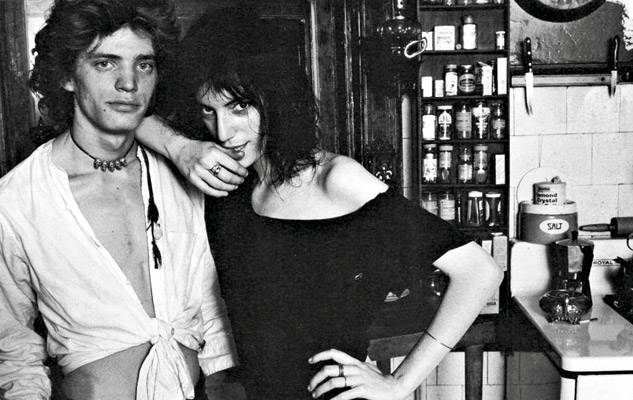
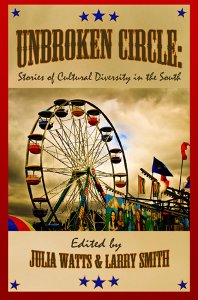
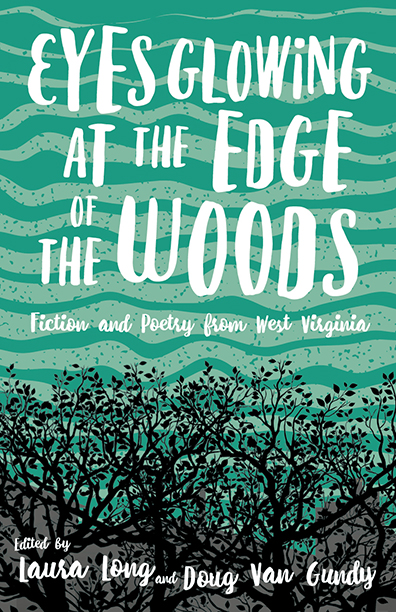
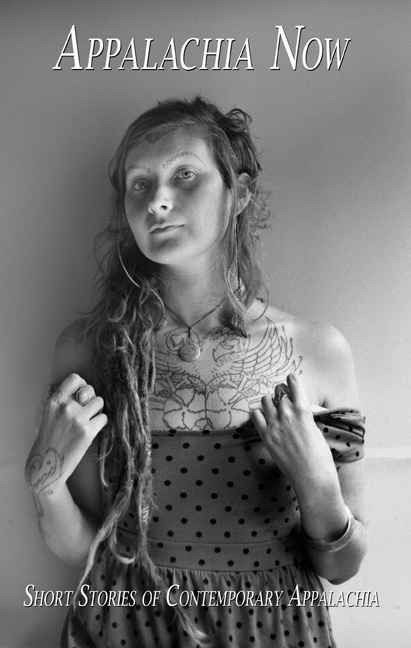

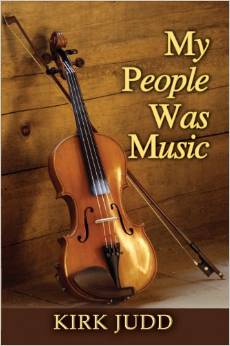

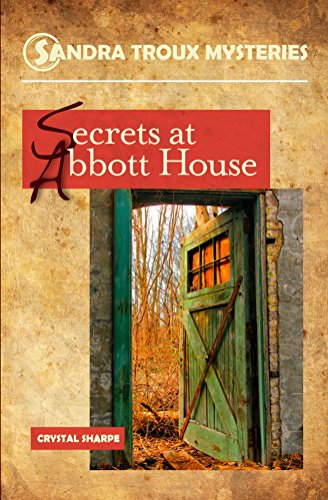




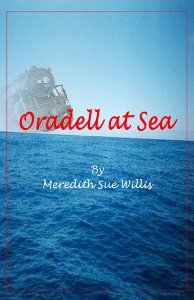
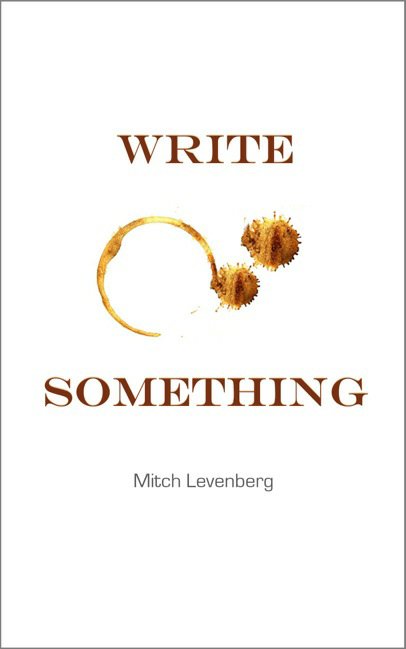
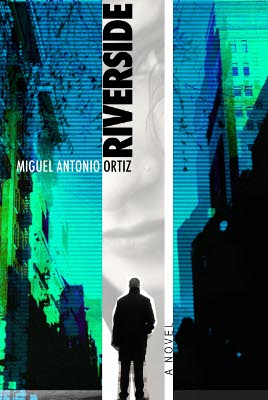


No comments:
Post a Comment